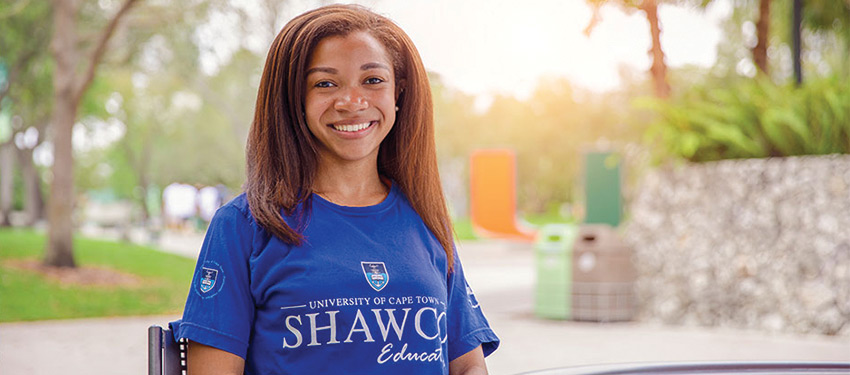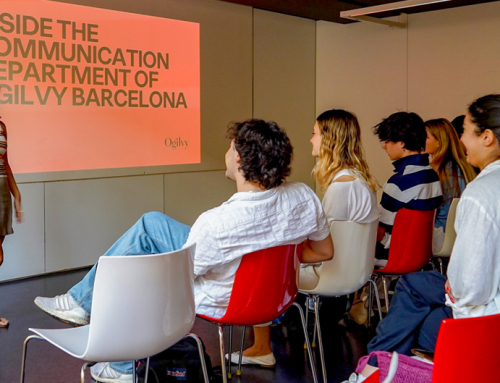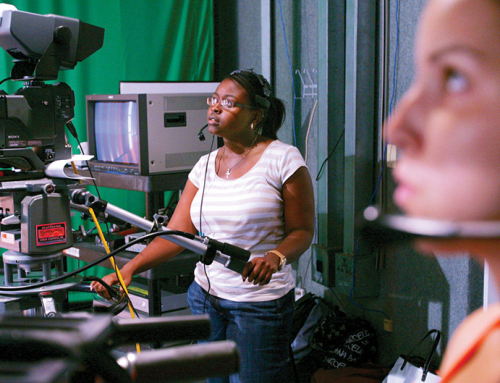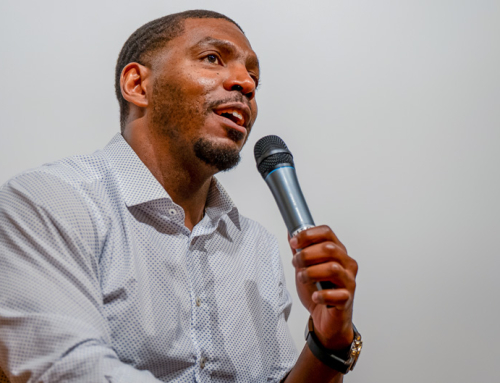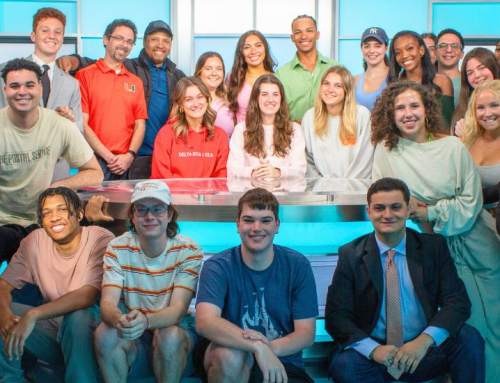When University of Miami senior Breana Ross left the United States last spring to study abroad in South Africa, she thought she had a grasp of what poverty looked like.
Ross had volunteered at a homeless shelter throughout high school, and founded the service group Written in My Soul at UM to help underprivileged Miami children express themselves through writing.
Yet the scenes she saw in South Africa were humbling. As part of a course required on her UCapeTown program, Ross volunteered with an after-school enrichment program called SHAWCO Education, which serves children who live in townships, or areas of forced segregation under apartheid. Although the prejudiced government policy ended in 1994, South Africa remains a country where economic mobility is difficult for blacks and those of mixed European and African or Asian ancestry, often referred to as “coloured.”
“It’s hard to wrap your mind around the poverty there, and how the legacy of apartheid influences people’s lives so much,” said Ross, a broadcast journalism and political science major, likening the policy to the Indian caste system.
In a video presentation, Ross described the scene as she arrived in Nyanga, a black township near Cape Town where she spent Mondays with third graders. She said many of the children came to school barefoot and often battling illness.
“As we rode in on the school bus, I couldn’t help but notice that the streets were lined with shacks that barely looked like they were being held together by anything,” said Ross, who is also a Hammond Scholar and a Foote Fellow. “They were dilapidated and they were people’s homes. And they were my students’ homes, I realized.”
Ross wrote about these experiences on her blog, and also wrote a piece for the University of Cape Town’s student newspaper during her four months on the UCapeTown program.
For her skillful ability to describe these experiences, Ross was recently awarded the 2018 Global Citizen of the Year Award from IES Abroad, a Chicago-based company that works with UM and runs study abroad programs in 85 locations around the world. They began recognizing students with the Global Citizen award and a $1,000 prize three years ago, but this year marks the first time the designation was given to a UM student.
“From founding her writing organization for low-income youth in Miami, to volunteering to teach math and reading to elementary kids in a black township in Cape Town, giving back is part of who Breana is, no matter where she is,” said IES Abroad’s senior AVP of marketing, Amy Ruhter McMillan. “Each year, we seek to find extraordinary students who are going out into the world to learn and do good, and Breana did just that.”
Just about six years old, the UCapeTown program begins with a foundation course co-taught by Professor Richard Grant in UM’s Department of Geography and Regional Studies that introduces students to the history of South Africa. Then the course pushes students to get involved with a non-governmental organization of their choice for an 80-hour service commitment. What attracted Ross to the program was its service component, which is unique to the South Africa study abroad experience.
Grant said most students enjoy the six-credit course because it gives them hands-on experience in the country that hopefully aligns with their career goals. While some pre-med students have volunteered at mobile medical clinics, one also volunteered to teach surfing to underprivileged kids.
“All of my students are like evangelists for the UCapeTown program,” Grant said. “It’s a very powerful experience that they have over there.”
Although Ross spent her service learning experience teaching, and not formally reporting—she and a UM classmate took a bus twice a week to two different townships to teach English and math—she said she will undoubtedly draw upon her experience abroad as a journalist.
Throughout her time in South Africa, Ross would reflect upon situations and conversations about race through her blog. She was surprised to find an audience at home captivated by her perspective.
“I’ve started to look at journalism as a way of giving viewers a window into a world that’s different from what they know,” she said. “I did not realize how much my blog posts would impact and enlighten people, but when I started to look at journalism like that, it changed the way I tell stories.”
Ross added that her third-grade students were able to impart something to her as well—a sense of resilience and optimism for the future.
“Many of them did not have adequate food, water, shelter, or clothing, yet they approached each day with a happiness and zealousness that changed my entire perspective,” Ross said. “They did not focus on what they did not have. They focused on being happy in the present moment and showing love the best ways they knew how.”
